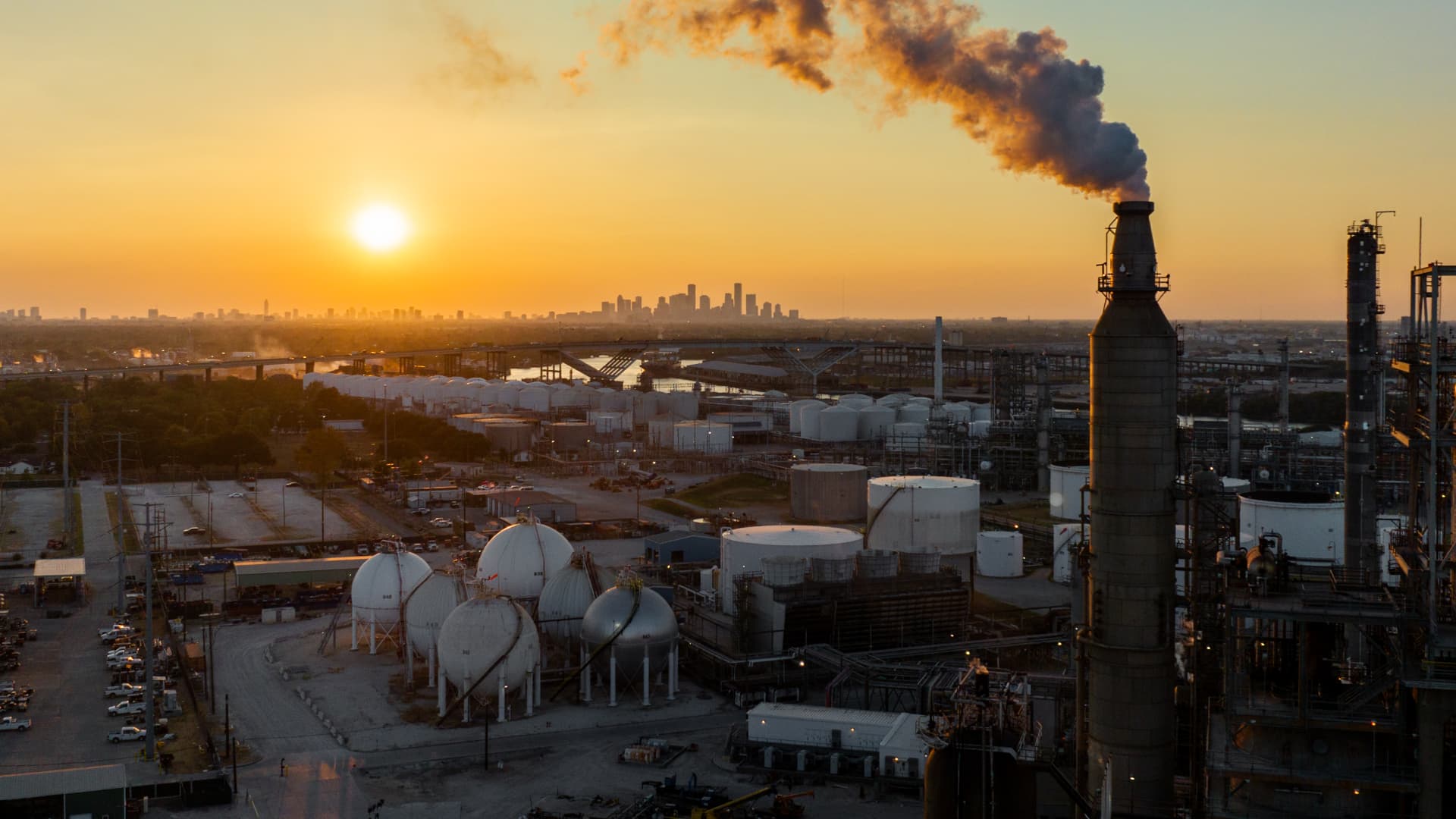In an aerial view, the Valero Houston refinery is seen on August 28, 2023 in Houston, Texas.
Brandon Bell | Getty Images
This report is from today’s CNBC Daily Open, our new, international markets newsletter. CNBC Daily Open brings investors up to speed on everything they need to know, no matter where they are. Like what you see? You can subscribe here.
What you need to know today
All eyes are on Arm
Chip designer Arm will list 95.5 million shares between $47 and $51 apiece, according to an updated filing for its initial public offering on the New York Stock Exchange. That gives the company a valuation of up to $52 billion. Tech giants like Alphabet, Apple, Nvidia and semiconductor companies like Intel, Samsung and TSMC are all interested in buying Arm shares.
More oil cuts until December
Saudi Arabia is extending its oil production cut of 1 million barrels per day until the end of the year, according to the state-owned Saudi Press Agency. Russia also pledged to reduce oil exports by 300,000 barrels per day until December 2023. Both Brent and West Texas Intermediate futures rose by a dollar to their highest levels since November.
‘Hell of a good week of data’
Last week, we learned inflation is moderating as expected and the jobs market is loosening. Federal Reserve Governor Christopher Waller told CNBC it was “a hell of a good week of data” on the inflation front, which allows the Fed to “sit there, wait for the data, see if things continue” — suggesting the Fed might indeed keep rates unchanged at its upcoming September meeting.
[PRO] Goldman cuts recession odds again
Goldman Sachs has cut its odds of the U.S. slumping into a recession from 20% to 15%, citing encouraging signs from recently released economic data. In turn, the investment bank thinks the possibility that the Fed will hike rates in September is “off the table.” Here’s what else the bank is saying about the U.S. economy and the trajectory of interest rates.
The bottom line
Even as Federal Reserve Governor Christopher Waller acknowledged to CNBC’s Steve Liesman that inflation data has been encouraging lately, he emphasized it’s more important to see if prices continue dipping in the long term.
“We got two good reports in a row,” Waller said. The key now is to “see whether this low inflation is a trend or if it was just an outlier or a fluke.”
With Saudi Arabia and Russia’s oil production cuts, there’s a danger that the previous months of low inflation might be an outlier. After the news broke, October contracts for WTI rose to $86.75 per barrel and November contracts for Brent hit $90.05 a barrel, the highest levels for both in 10 months.
“Rising oil prices really feeds into the story about inflation,” said Bill Merz, head of capital market research at U.S. Bank Wealth Management. “And the story about inflation feeds into bond yields and a story about the Fed and what the Fed is going to do.”
Indeed, U.S. Treasury yields climbed on the news, because stronger inflationary pressures suggest higher — or at least persistently high — interest rates for longer. The yield on the 10-year and 2-year Treasurys jumped around 9 basis points to close at 4.266% and 4.96% respectively.
Higher Treasury yields and rising oil prices were bad news for stocks (except for those in the energy sector, like Halliburton and Occidental Petroleum, which added more than 2%). Even Goldman’s call that a U.S. recession is increasingly unlikely this year couldn’t lift investors’ sentiment.
Major indexes ended the first trading day of a holiday-shortened week lower. The S&P 500 lost 0.42%, the Dow Jones Industrial Average dropped 0.56% and the Nasdaq Composite slipped 0.08%. Additionally, the Russell 2000 index of small-cap stocks fell 2.1%, its worst performance since April 25.
It’s only one data point — so it could be an outlier or a fluke, as Waller put it — but September, true to its reputation, already seems a tough month for stocks.

